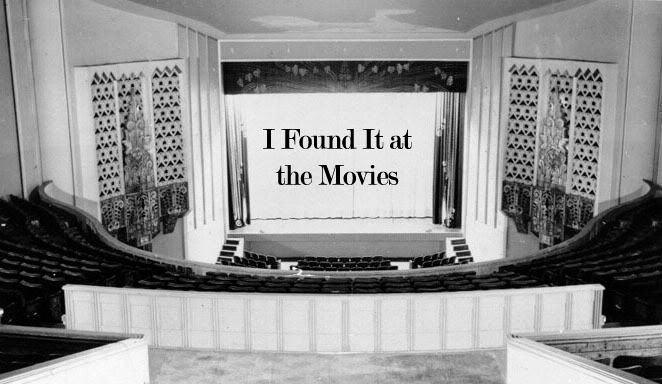
Evan dear,
You covered plenty of ground; I hope you'll forgive a similarly broad response, which addresses, I suppose, your general effusiveness - and my (mostly) opposite response.
Why do I so despise Contempt? It's a difficult question to answer, particularly in the space alloted for this discussion. I will say, first, that I consider the general experience (physical and intellectual, rarely emotional) of the viewer particularly significant - this is why I would begin with the question above. I recall first seeing Contempt in Malcolm Turvey's class on Hitchcock and Godard, though not particularly well (I can barely remember what I saw for the first time today!); what I do remember is being bored. Of course, in terms of the more general discussion of the film, the immediate answer might be, "Why, that's just the point!" Really? Would I like to watch a full-length feature making this point more than once? I might go ahead and interpret the thing a thousand ways to attempt to defend my displeasure and barely suppressable yawns, intellectually, yet I think this negative experience matters a great deal. I guess I sound a bit like Jerry - "The wise man does not oppress others with his superiority."
And yet, I adore many of Godard's particularly "difficult" (read: pretentious, longish, etc.) films, such as Ici et ailleurs (Here and Elsewhere) and, my personal favorite, Weekend. Early in Contempt, when Palance's Jerry first appears, he's ranting (and I love Palance throughout for just this sort of thing) about his somewhat depleted budget and empty "set"; he concludes with arms thrown out, saying, "And this, my lost kingdom!" However, when Frencesca translates the latter for Paul, and I think the difference is important, she says, "It's the end of cinema." Paul, as obtuse as he will be throughout, answers, "I don't think cinema will ever die." If the subject of Contempt is indeed the art film, you will surely agree that this is a significant exchange and an important moment of various levels of miscommunication. However, returning to my earlier comparison, I can't help but draw a parallel to the intertitles of Weekend, one of the more powerful of which reads "END OF CINEMA". As such a claim can hardly be considered minor for either film - it's about the death of the medium itself, after all - broadening the comparison is surely acceptable. Furthermore, I might add, if Godard has indeed performed what this phrase states, it's as significant to his "project" as, say, Hegel's "death of art" or Nietzsche's "God is dead," if I might be so bold. And I will!
The respective manner in which the two films enact the "end of cinema" highlights the distinction that, in my general verbal and, after all, knee-jerk response, becomes paramount. Weekend is hilarious, disgusting, shameless, and wonderfully broad; it effectively touches upon many issues, including Marxism, the evils of bourgeois consumerism, the irreversible comodification of the "men, nature and gods" that still (somehow) interest the art cinema, the destruction of the sages and innocent idols of the past, the need for revolution on the scale of the present destruction, and so on. This is the "end of cinema" - the end of a tradition of filmmaking in which we can continue to root for the "good" rather than the "bad," ponder the significance of the danse macabre or the quality of emptiness of the individual, become intimately involved or perversely aligned with the characters whatever their supposed moral qualities, or, say, the universal qualities of hatred, violence, sadness or love. Sure, the belief in so many "truths" remains lurking behind the screen where the contemporary Hollywood film plays or even within the hearts of many contemporary indie films; after all, people continued to make art after Hegel and to worship "God" after Nietzsche. The point is, the door was opened. The "protagonist" can turn to his wife and say, "What a rotten film. All we meet are crazy people." (And just one more quote! "I am here to inform these modern times of the grammatical era's end and the beginning of flamboyance, especially in cinema." Postmodern? Maybe, if you believe in that stuff. Fantastic? Undeniably so.)
So, I'll stand up and say, well, Weekend does, in fact, achieve a sort of "END OF CINEMA", without leaving the cinephile wallowing and afraid - we've entered the beginning of flamboyance! Screw "high art" or the "Idea"! But what about Contempt? If the filmmaker's angst represented by the misunderstood hero-artist (Lang) or the easily bought-and-sold (Paul) or the powerful yet shallow (Prokosch) is not ironic, and I don't think you mean to suggest that it is, Evan, well, doesn't that mean there's still the hope for the great cinema, for the power of the "Art Film"? Does the "end of cinema" refer to this profuse bitterness and worship of Lang, the languishing voice of greater truths? If so, can we accept this backwards adoration, knowing what we know, having seen what we've seen? Gods, nature, existence, essence, beauty, nature - they're "grammatical" (or linguistic or dead) values, and Lang, and perhaps all of Contempt, worship angrily and tragically at their demise. Get over it! I'll take flamboyance over boredom any day.
But I'm not fully convinced of this latest interpretation of the film; as I mentioned, I might redeem the film for myself by viewing such nostalgia as ironic. Paul claims to love all of Camille "tragically," and having seen Contempt, we know how absolutely moronic that statement is.
How's that? I'm dying to say more.
Madelyn


7 comments:
Online Gaming Casino tyuueooru
http://stonewalljacksoncarnival.org/ - Casino Game Download
Additionally, you don?t have to stand out of your casino till the clock hits its opening time because a majority of online casinos are accessible 24/7.
[url=http://stonewalljacksoncarnival.org/]Top Casino[/url]
2.
Best Casino
No matter how far your casino is located With online casino, you don?t have to worry about the location of your casino because the only thing that creates between you and your casino experience is the internet, so all you need to do is getting connected to the Internet and you can enjoy the gambling without having to spend your time visiting the local casinos out there.
I thik that everyone have had a conversation like this, so I remember when I met a friend who is so beautiful and we had a chit-chat so natural and free.
I am very much pleased with the contents you have mentioned.I wanted to thank you for this great
"A Conversation About "Contempt, Part II" article. I enjoyed every little bit part of it and I will be waiting for the new updates.
--------------------------
My web: Bonus senza deposito 2012 & Poker senza deposito italia
Superb site here. "A Conversation About "Contempt, Part II" is great.
-------------------------------
POKER SIN Dinero !
Well written "A Conversation About "Contempt, Part II" article, well researched and useful for me in the future.I am so happy you took the time and effort to make awesome I Found It at the Movies blog here. See you around
--------------------------
My site: Poker Money Sponsorship Bonuses.
Great job with "A Conversation About "Contempt, Part II" article! Love your writing style on I Found It at the Movies! Funny, but serious and to the point, at the same time! Nice job dear admin.
--------------------------
My site: Play Poker Without Cash 100% free poker !
Why do I despise Contempt? Hmm.
Post a Comment